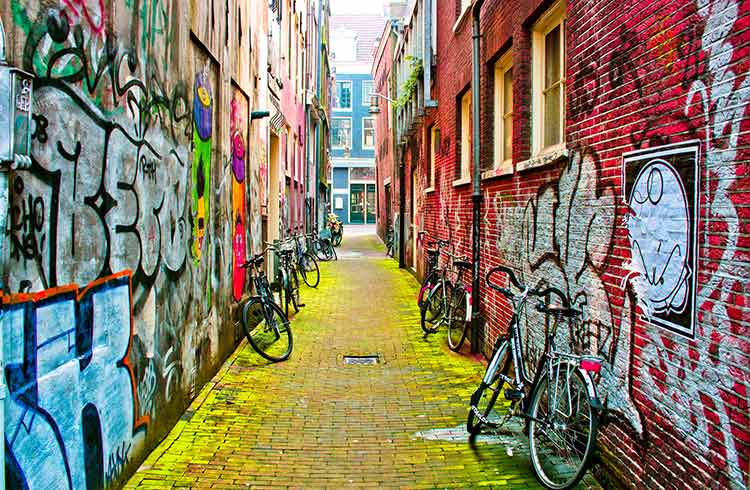4 Common Scams Travelers Need to Know in Amsterdam
There are a number of criminals targeting unsuspecting tourists in Amsterdam. Be aware and on the lookout for these common tricksters to avoid trouble on your trip.
 Photo © Getty Images/Lolo
Photo © Getty Images/Lolo
Here are four of the most common scams you should be aware of before you go to Amsterdam.
1. Fake notes and fake police in Amsterdam
Visitors to the Netherlands have reported some individuals pretending to be police officers. These people will question you over drug possession or counterfeit currency, and ask to see your bags. If someone asks to see your bags, they are likely not a police officer.
This is preying on a widespread fear in Europe that the central currency, the Euro, is easily forged and put into circulation.
There was a flood of fake 100 Euro notes in the Netherlands in 2004, and many businesses in smaller towns stopped accepting them. Even now, you may still find some reluctance.
Here're some tips on spotting a fake Euro note:
- Euro notes are made of 100% cotton material, making them hard, stiff and firm when touched – they are not flimsy
- Hold the note against plain light and look for the whole denomination number on all corners on both sides of the bank note. The number should be perfectly printed. There should be a dark security stripe across the note
- The hologram image changes from the value to a window or to a door symbol when turned in the light. The denomination number on the back should also change from purple to green
- You can carry small battery-operated ultra violet lights to check notes. Under the UV light you should see the signature of the president of the European Central Bank and the flag symbols turn green, the star symbols turn orange.
2. Taxi scams
Taxi drivers waiting outside the main airport may also be criminals who take you to a location, far away from your accommodation, so they can rob you.
Many people consider the legitimate taxi drivers to be no better than thieves. The industry is heavily regulated. The drivers think the rules are unfair, so when there are none of the official taxi-police around they make up their own rules. They'll refuse to use the meter and charge flat fees regardless of distance, or simply make up a fare because it's a quiet night.
Even if they do agree to take you and switch on the meter, the fare will make your eyes water – 40 Euros or more from the airport to the city center is common. With such good public transport in Amsterdam, why bother with a taxi?
3. The white van scam
Watch out for the white van scam, where a pair of men in a white van approach and say they work for Bose. They'll typically say they are lost and ask a tourist for directions to a location. In exchange, they offer discounted products in a box, but when you give over your cash and take the boxes, you find they are empty.
Souvenir shops many be dodgy as well, as one tourist said he received a fake 20 Euro bill after a shopkeeper apparently sent him all around the store so he could scam him.
Scammers will often wait outside transportation centers and offer to take tourists to certain hotels, but re-direct you to some other establishment.
Transport hubs are also fairly risky after dark, when you will run the risk of having people try to "help" you with various tasks or trying to pickpocket or rob you.
Beggars will not leave you alone if you give in to their requests for money. Always say no and walk away.
These are all fairly standard scams and traps for visitors to any city, but are common in Amsterdam.
4. Accommodation scams in Amsterdam
There is a major scam surrounding accommodation booking in Amsterdam, but you usually get taken before you arrive.
It is possible to find short-term rentals and other housing opportunities using sites like Craigslist and Gumtree, but criminals are now posting bogus properties with a cheap price. You can narrow down which accommodations are suspect by simply reading the ad. Often, a scammer will use poor language, pictures that look too good to be true, and have websites with bad designs. These websites often have very similar URLs to other rental ads.
Asking the ad poster to inspect the accommodation or having a friend in the area inspect it will usually be met with a "no" if the ad is indeed a fake. The good thing with scams on the more popular listing sites is that savvy community members will often start forum threads saying which ads are scams or are suspected of being scams.
Simple and flexible travel insurance
You can buy at home or while traveling, and claim online from anywhere in the world. With 150+ adventure activities covered and 24/7 emergency assistance.
Get a quote
No Comments